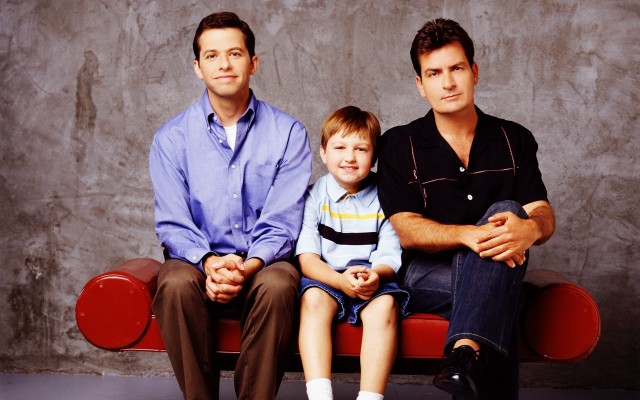Television, whether here in India, or in the USA is always all about a few shows. No matter how many shows the idiot box may have, most of us will always have a small, distinct set of shows one will always catch on cable.
And involuntary or not, this irresistible habit of ours, will make or break a TV show.
Chuck Lorre’s The Big Bang Theory, is a beast of the former nature.
With an average weekly viewership of 21 million viewers, not to mention the millions in Engineering colleges across India who put their torrents to use, the show is the most watched television series, comedy or drama, cable or otherwise for the past few years.
Talk about the nerds scoring.

A Game-changing gamble
It is therefore interesting to note that the beginnings of the show were not nearly as successful or enthusiastic. Forever on the verge of being cancelled after its first few seasons, and never a critical darling, The Big Bang Theory had few things going for it.
What it did have however, is Chuck Lorre.
Chuck Lorre, the man behind the hit favourite Two and a Half Men and the network, gambled on the notion of televising the show right after 2 ½, and it worked wonders for it.
Viewership sky-rocketed, and even if the critics were nowhere as generous the show started scripting a success story not seen in network television since FRIENDS (True, Modern Family’s runaway Emmys are a historic success as well but, nowhere nearly as popular).

What’s the secret behind its success?
Why is it so popular? More importantly, why do so many people love it?
As someone who spends most of his daylight time sitting cooped in front of his laptop and an admittedly keen sense of television comedy, I’ll say there are shows that are immensely better.
Big Bang is neither as funny as HBO’s Silicon Valley, nor as sharp as another HBO favourite Veep. But, it still has an audience almost three times the number. How come?
The characters, without a doubt. In Dr. Sheldon Cooper Ph.D., played brilliantly by Jim Parsons, the show has a character for the ages.
Equal parts annoying, equal parts endearing and always, always funny, Sheldon is the engine that keeps this machine of a show running. Even when I watch the show consistently underwhelming the audience with its characterization and plot movements, I am always surprised with how well Parsons becomes Sheldon on screen.
Ably complimented by Galecki (Leonard), Helberg (Howard) and Bialik (Amy) among others, the writing is consistently amusing, if not always hilarious enough to support its fascinating characters.
Not so ‘scientific’ after all?
There are issues too, very big ones which is why the show is never as good as it should have been. As good as the writing is, there is no respite from the pseudo-intellectual and nerd humour the show strives by, which is why as the season usually progresses, it comes off more exhausting than funny.
Not to mention, there is a rich vein of sexism (Penny’s characterization as a dumb blonde) and racism (Raj: The Quintessential Indian stereotype) that courses through such humour.
Secondly, there comes a point when you long for some characterization and plot development from the show you love. For this one however, the moment is long gone.
Which is why, as good a character Sheldon is, you can’t help wonder why the man-baby always gets what he wants when the episode goes off air, especially since the episode was all about exacerbating all the existing ticks of Sheldon’s character.
In other words, Sheldon Cooper is this show’s greatest strength but, he is also one of its weaknesses.
The Big Bang Theory is not perfect.
Far from it.
And unlike many, I don’t love it.
In fact, I’d rather spend my time watching re-runs of Seinfeld, FRIENDS and maybe, even Modern Family. But, I love it just enough to tune in to watch it every other week it airs.
In a way, I am not only a part of this show’s dedicated audience but, also a part of its history. And perhaps, in an age of 24-hour broadcast television, that’s all that matters.


































